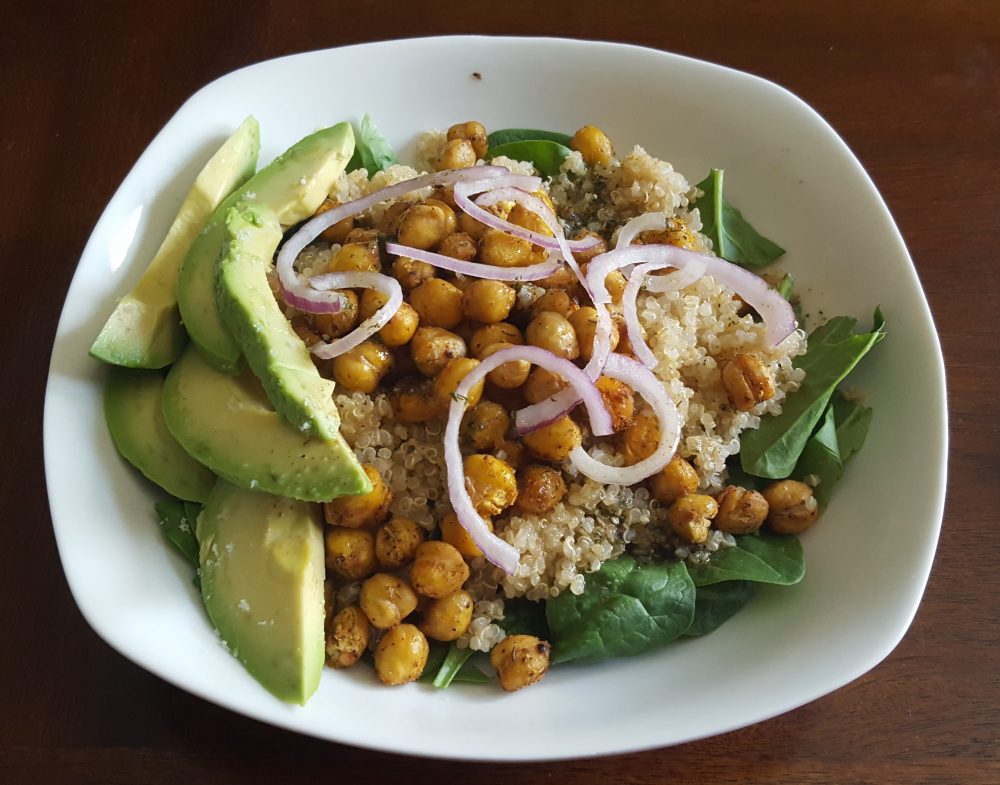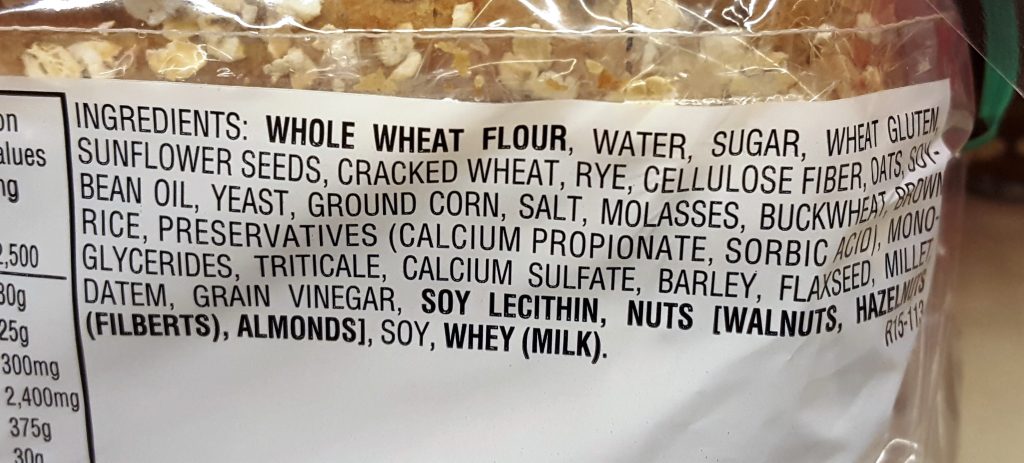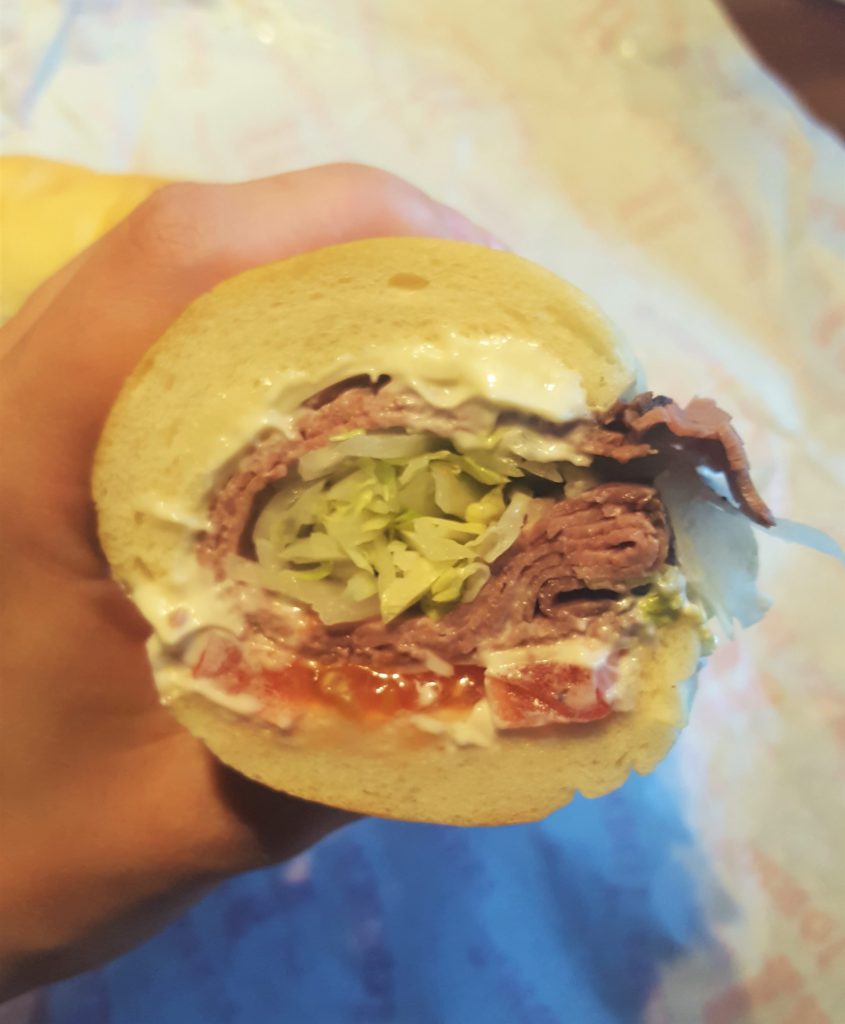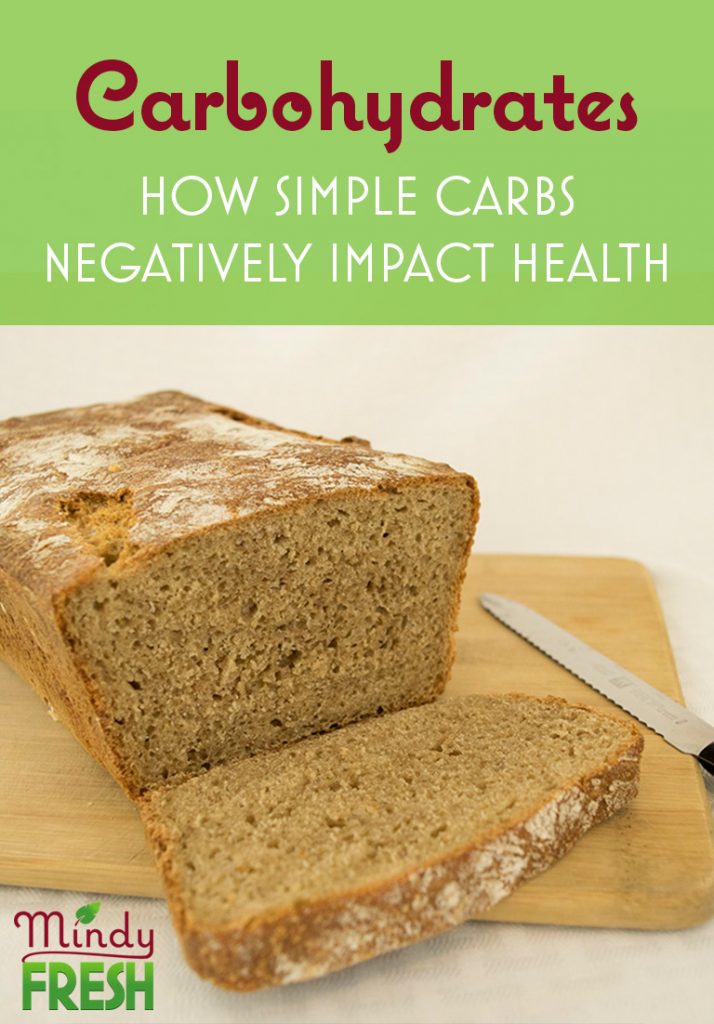What is the truth about carbs? What are good and bad carbs? Should we eat “low carb”? Lately I’ve been seeing the articles that come out saying all different things about carbs. Let’s drop the good and bad terms and focus on what is nutritious and what isn’t.
The truth about carbs is that it is good for your body to consume them, because they are a macronutrient, just like fat and protein and are necessary for body function. (Some keto folks may disagree but this is the general nutritional knowledge). However, the type of carbohydrate you consume does matter. There are two main types: complex and simple.
The Truth About Carbs
Complex Carbohydrates

Complex carbohydrates include starchy vegetables and certain grains. Their chemical make-up is more complex and takes them longer to digest (that means you actually get full). These are good for you because they provide nutrients and fiber. They keep you satisfied longer and do not raise blood sugars quickly or as high. Vegetables are the best source of complex carbs and you should never worry about eating too many nutritious vegetables. Here are some examples of other good sources of carbohydrates:
- Sweet potatoes
- Carrots
- Squash
- Plantains
- Beans
- Oats
- Quinoa
- Whole wheat breads (check ingredients though!)
- Potatoes
- Brown rice
Fruit provides you with nutrients and fiber, yet it is more simple in nature due to fructose. If you are drinking its juice, you won’t get the fiber that makes it better for you and easier for digestion. But whole fruit is definitely something good to eat.
Whole Grains
Whole grain includes all the parts of the wheat (germ, bran and endosperm). That means all the nutrients are left in. Wheat flours or white flours are stripped of some and all nutrients, respectively, and the product will be fortified with vitamins instead. The bran and germ may be taken out. This makes breads taste better and more chewy, which people like. “Multi-grain” can include any combination of flours and does not always mean it is whole grain.
Whole wheat breads tend to be loaded with other junk. Unless you make your own bread, it’s best to be limit your intake of processed breads.

I love making my own sourdough and Angelic Bakehouse is where we buy most of our products.
Altering Complex Carbohydrates
Unfortunately, now we are seeing starches get chemically altered into a simpler form, such as when corn is made into high fructose corn syrup. This causes quick digestion which leads to hunger and more cravings. You can find many of the forms of altered starches in your processed foods, which happen to give these foods a sweet flavor. Why is this bad? An overload of fructose causes the liver to convert more into fat, prevents a hormone from telling you that your full, and tells cells to burn sugar instead of fat.
Simple Carbohydrates

These include what most people tend to eat: white breads, pastas, bagels, juices, sodas, crackers, cookies, etc. I’m sure you know all these foods aren’t great in large quantities for you but do you realize how they can affect your body if you eat them all the time?
Let’s take for example what a typical person might eat in a day:
- Cereal with orange juice at breakfast
- Peanut butter and jelly sandwich for lunch
- Spaghetti at dinner
The body is consuming lots of sugars (glucose) that are overwhelming the insulin (to take care of the extra glucose). They may experience mood changes or crashing throughout the day after the sugar high has worn off. Their hunger will not be satisfied and they may crave even more sugar.
Gluten Free Foods
You may be surprised to know that even your packaged, processed gluten-free foods are full of simple carbohydrates. Just because they are “gluten free” does not mean they are healthy. If you are truly eating gluten free, you should stick with vegetables and fruits and avoid those boxed products that are equally bad for you. Over consuming rice flour, potato flour, cornstarch, and tapioca starch, for example, can spike blood glucose. There’s many preservatives in these products as well.
Implications of High Simple Carbohydrate Diets
This is the most basic way to explain long term what can happen:
Eating simple carbohydrates → blood sugar spikes → inflammation → disease
Inflammation affects every system in the body. You don’t always realize it’s happening. Inflammation can be happening in the blood vessels, damaging the walls and collecting plaques. It can be damaging the nerve impulses to the brain. It can show up in your joints and then you have arthritis. We wouldn’t attribute arthritis to our high carbohydrate intake would we? These things do take years to show up and can never be pinpoint to a certain cause.
Research has shown high carbohydrate diets are associated with disease. It is not the fat in our foods causing problems, it is the excess sugar carbohydrates and ultra processed food. If you continually eat a lot of glucose, you will become insulin resistant and need more insulin to get rid of the glucose. Now eventually the body will tire out and not be able to do this but also glucose will continue to rise as insulin production slows and diseases of eyes, kidneys, blood, and nerves can develop. All of these problems are related to the insulin response.
Diabetes
As I described before, increased insulin resistance and excess glucose is what leads to diabetes. Diabetics have to constantly “keep blood sugars up” to remedy their hypoglycemic (low sugar) state. Or if they eat too many sugars, they have to give themselves extra insulin. The best response is a big diet change and it has shown to be very beneficial.
Obesity
This is due to higher calorie intake with less nutritional value, increased insulin resistance which leads to increased fat storage. Insulin slows important hormones that help in fat burning and muscle growth. Then the body is less able to lose the fat. It also leads to converting glucose into triglycerides which can turn into fat.
Dementia
Again, with the inflammation. Insulin resistance can decrease your cognition and ability to think. Healthy fats contribute to brain health.
Heart Disease
Higher carbohydrates are shown to lower HDL, which is an important marker for heart disease. This number should be higher. Heart disease is associated with carbohydrates rather than the previous thought being fats. This could be due to high carbohydrate intake allowing less beneficial fat intake for daily calories. Regardless, sugar is running through the bloodstream, damaging blood vessels. This allows deposits to form easily.
Other fads
I’ve seen in many articles out there new ways to lose weight involving carbs. There’s people and research on both sides saying what works and what doesn’t. For example, they say wheat bread is healthy because the study showed it was better than white, so it must be good. Just a simple result as such does not make something absolute. We can say however, that a processed bread overall is not ideal. I’ve seen ideas about carb cycling and eating a certain amount certain times of day. This all just makes things more complicated. If you truly want to lose weight and change your life, only a lifestyle change will work. Eat nutritious foods. Maybe some of these worked for someone else but it was likely temporary. Do what works for you.
A few things to look into:
Grain Brain by Dr. David Perlmutter
Wheat Belly by Dr. William Davis
Fresh Idea: Stick to whole grain and vegetable based carbohydrates.



Pingback:How To Hide Vegetables: Easy Ideas & Recipes To Help
Pingback:Eggplant Parmesan Lasagna: Alternative Healthier Version of Lasagna
Pingback:How to Make Homemade Sourdough Bread